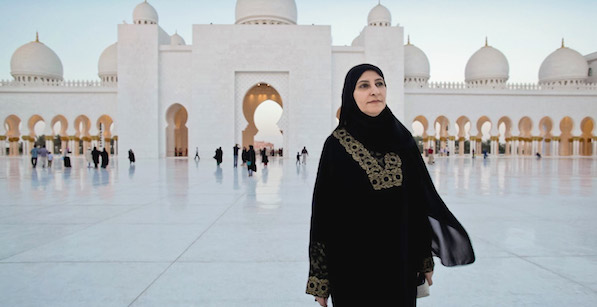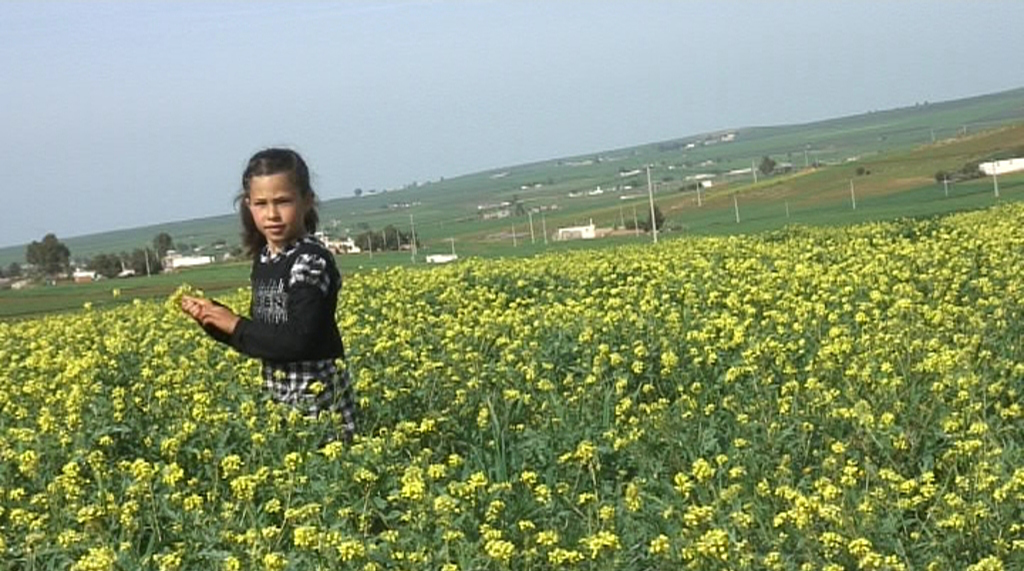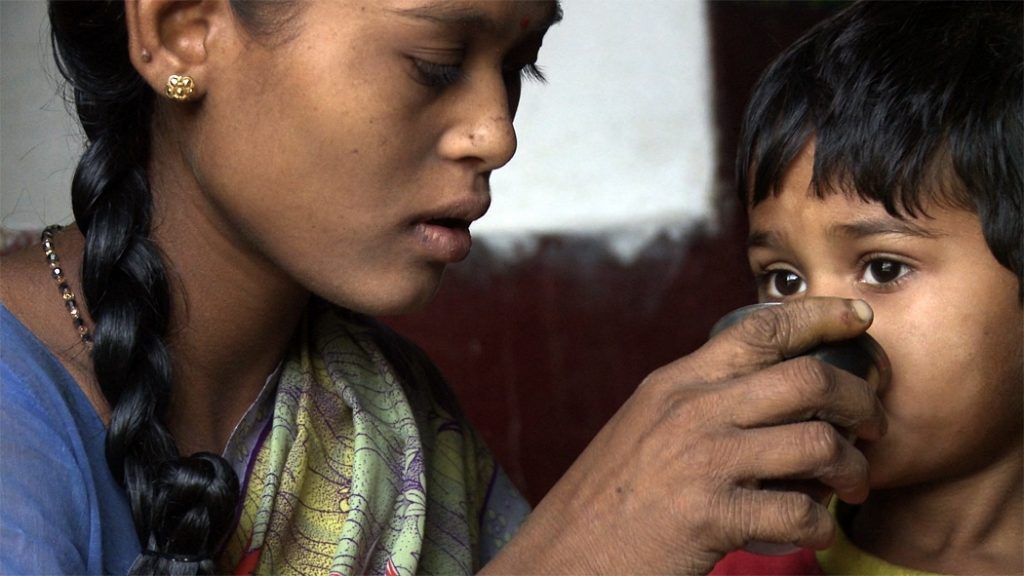An encouraging number of films at the 16th Thessaloniki Documentary Festival (TDF) last week were by and about women. On the one hand the implication here might be that more and more women are taking to the documentary form due to their continued marginalization within the mainstream industry. On the other hand, however, there not only seems to be an increase in serious non-fiction films focused upon worldwide feminist struggles, but TDF—under artistic director Dimitri Eipides—is surely by now one of the most prominent documentary festivals committed to films of supposedly niche appeal. As such, in the airtime it gives to politically engaged works, TDF (alongside Thessaloniki International Film Festival, which takes place every fall) figures as an active, indignant rebuttal to the Greek government’s continued austerity measures—which are sharpening racial, class and gender tensions as I write.
Receiving its world premiere at this year’s TDF was Bastards, by UK filmmaker Deborah Perkin. A veteran of television documentaries for the BBC and other broadcasters, Perkin had to look elsewhere to fund this, her first independent feature-length documentary. It focuses on several Moroccan women who, though living under the repressively patriarchal codes of Sharia Law, are pursuing legal justice through their country’s comparatively progressive court system. The title refers to children of single mothers, whose social and political castigation is a result of (apparently) being born out of wedlock. Often, the accused outright denies being married to the victim. As frequent are claims that he is not the father of the child.
While religious scripture has at times been interpreted to favor perpetrators of domestic violence and rape, in Morocco, there is a legal process in place by which victims may seek some kind of legal recompense. As we see, this takes the form not only of proving a marital status (by bringing to court witnesses who attended the ceremony), but of also proving biological fatherhood through DNA testing.
Victims are helped in their cause by a number of pioneering women’s charities—which seek a degree of reconcilement between the victim and accused before taking the case to court; their reasoning is that if the father acknowledges his debt, his child will consequently be recognized as legitimate. Though this seems to be a limited and even reactionary approach (to what extent does said reconcilement only reinforce the gender inequality endemic in Sharia Law?), it is a pragmatic and demonstrably effective process.
In the Q&A that followed the film’s world premiere, Perkin was quick to stress that Morocco is not without its own problems, namely the corruption that still pervades and stems from an overwhelmingly misogynistic social worldview. At the same time, however, there is now an opportunity for women to take up arms, something without precedent among Muslim nations. Perkin also stated that her film is intended to be a positive view of said countries—at a time when coverage of Islam by the international mainstream media is marked by reductive caricature. Still, no television broadcaster in other Muslim countries had at the time of its screening picked up the film.
One other contradiction within Muslim nations stems from the radically progressive gender politics on display in Turkish soap operas, which have gained massive popularity among Muslim women in the Middle East, North Africa, the Balkans and Asia. This is the heart of Cypriot-Greek co-production Kísmet, by Nina Maria Paschalidou, which interviews a number of women who tune in every week to follow the romantic travails of protagonists to whose social and political plights they relate.
To at least one western critic, these soap operas are on first appearance laughably hammy, the stuff of unintentional laughs and dismissive mockery rather than serious artistic analysis. It’s to Paschalidou’s credit then that I came to recognize these works as culturally and politically meaningful sources of inspiration to a significant number of women, for whom such ongoing episodic narratives represent a progressive and challenging ideology. Watching the film, I began to think back to melodrama, Sirk and the women’s film—and the ways we might begin to extend the serious appraisal of such phenomena to other art-forms, cultures and media.
The result is encouragingly infectious. By recognizing on-screen protagonists’ oppression at the hands of male characters, and by in turn aspiring to the inner strength and dogged determination demonstrated by these women, viewers have begun to question their own material situations. Viewers in Abu Dhabi of Gümüş, which aired on Turkish television between 2005 and 2007, and which screens across the Arab world as Noor, speak of being bewitched by Mohanad, the impossibly perfect male partner of the eponymous protagonist. By aspiring to what might be a fantastical utopia, however, women have begun to demand things from their own marital situation—beginning, successfully, with divorce.
Turkish series such as Fatmagül (2010-2012) and 1001 Nights (2006– ) have had a massive influence upon rape culture. Dina Farid, founder of anti-harassment campaign group Egypt’s Girls Are a Red Line, says, “TV and media have a big impact in getting women to come forward and speak about abuse, harassment and rape.” Egyptian activist Samira Ibrahim, meanwhile, has made use of such social shifts to help put an end to virginity tests. One regular viewer of Fatmagül, Samah, reveals that she is following up a successful divorce from her violent ex-husband by now pursuing custody of her 11-year-old son—who, she says, has developed phobias as a result of domestic abuse.
Together, such progressive thrusts are helping to keep gender-specific issues embedded within wider political struggles—struggles against private property and the patriarchal codes helping to preserve it. For what is rape culture but the implied or explicit subscription to the view that a woman’s body is merely another form of property? The Arab Spring is not yet finished.
While films like Perkin’s and Paschalidou’s focus on the contradictions arising between religious doctrine and cultural/legal shifts, Spanish documentarian Nocem Collado’s impassioned and persuasive Women and Water takes as its starting point the Indian tradition by which women are domestically responsible for the daily provision of water. The social burdens faced by women in India find parallel in and are exacerbated by the country’s water problems: a lack of daily cleanliness, the physical injuries incurred by the transportation of water, the long-term dangers of delaying defecation in order to travel to a location in order to do so are all at the heart of Collado’s film.
Indeed, thanks to infrastructural shortcomings, ongoing privatization and a lacking educational system, India’s water supply is in crisis. Sanitation and scarcity are already an issue: among the lower classes in recent years, health figures have dropped and death rates have spiked. For those at the bottom rungs at least, India is a nightmare, but a lack of education with regard to the perils of an unclean water system renders this nightmare a routine and accepted truth that goes unquestioned. Women and Water documents the individual women and outreach campaigns seeking to turn this around.
As Collado conceded in the post-screening discussion, the gender divide, though not particular to India, is worsened by a nation-specific caste system. Similar to those in Kísmet and Bastards, then, in actively challenging continued governmental neglect—which is compounding women’s domestic burdens as well as widespread ignorance when it comes to basic health and hygiene—Indian women are integrating their own individual cause within a wider social struggle. The personal, as ever, is political—and for women oppressed the world over, the reverse is equally true.







